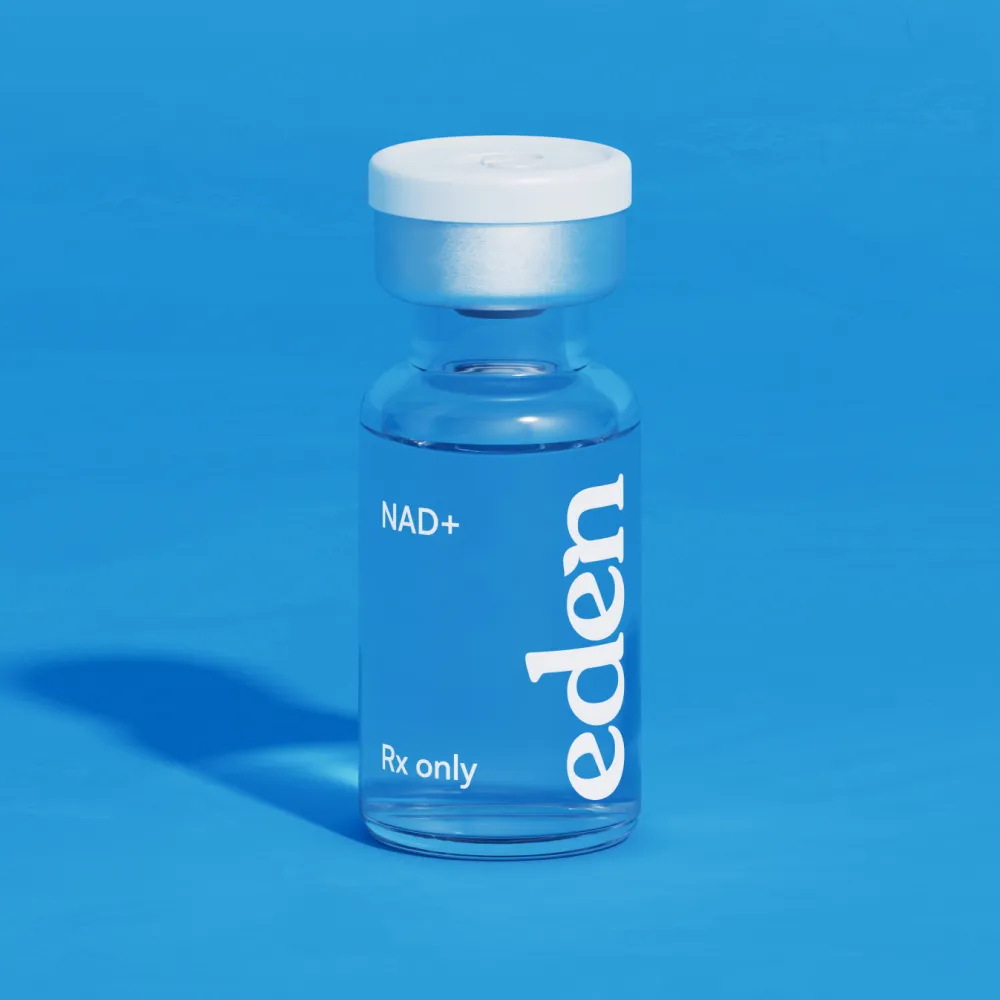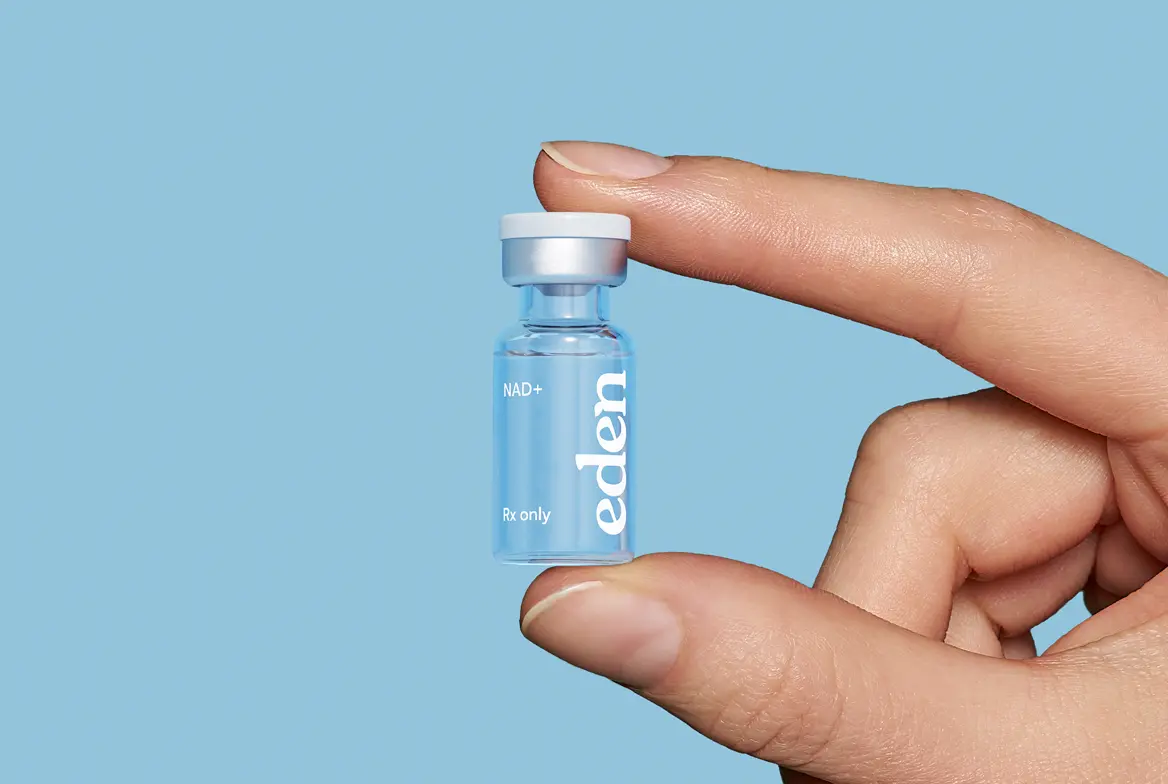Can NAD Be Harmful? What Risks and Side Effects to Know


Worried about safety? Explore when NAD can be harmful, potential side effects of NAD supplements, injections, and IV therapy, and who should avoid them.
- Can NAD be harmful? In short, this depends on various factors, such as an individual’s health status and dosage.
- NAD+ is a naturally occurring coenzyme involved in normal cellular processes, including energy metabolism and DNA repair.
- NAD support via oral supplements (often NAD+ precursors), injections, or IV therapy each comes with different absorption rates, dosing ranges, and potential side effects.
- Side effects that people report are often mild and temporary, including nausea, headaches, flushing, and injection site reactions, though more intense responses can occur with high-dose IV therapy and/or faster infusion rates.
- There’s no one-size-fits-all dosage; recommendations vary by format, and starting conservatively with professional guidance is the safest approach.
- Certain people should be cautious, including those who are pregnant, nursing, managing chronic conditions, or taking specific medications.
This content is intended for informational and educational purposes only and does not constitute medical advice, diagnosis, or treatment. NAD-related supplements, injections, and IV therapies are not intended to diagnose, treat, cure, or prevent any disease. Always consult a licensed healthcare provider before starting any new supplement or therapy to ensure it’s appropriate for your individual health needs.

Is NAD Good for You?
NAD+ has become a molecule of interest in the wellness and longevity space, particularly because it decreases with age. When NAD+ levels decline, certain cellular processes may become less efficient.
All in all, NAD+ plays a role in normal cellular function. But are there scenarios where it could do more harm than good? What is an ideal NAD dosage per day? And how do popular NAD treatments compare?
{{primary-cta}}
NAD Supplements vs Injections vs IV Therapy
NAD support can come from oral supplements (often NAD+ precursors) or, in some settings, NAD+ administered by injection or IV therapy. The format ultimately depends on various factors, and all of these methods come with potential side effects.
Oral supplements are a common starting point. They usually contain precursors such as NMN or NR, which your body converts into NAD+. These oral supplements are easy to take, require no needles, and are widely available. The downside? Your digestive system gets the first crack at it, which means absorption and downstream effects can vary.
Yet, injections skip the gut entirely—and are delivered directly into the muscle or just under the skin via a needle. For some people, however, needles might not be the most appealing.
Then there’s IV therapy, which goes a step further. NAD+ drips directly into your bloodstream, which can allow for higher doses and more direct systemic exposure. It’s the most intensive option, with sessions potentially lasting hours, higher costs, and availability only in clinical settings.
Potential Side Effects
What you experience largely depends on how NAD+ enters your body and how much you’re taking at once.
With oral supplements, digestive issues can occur, including bloating, cramping, and general stomach discomfort. Some people also report headaches, particularly when first starting out.
Injections may result in soreness, redness, or a small bump at the injection site. Mild fatigue or a brief wave of lightheadedness can also happen as your body adjusts.
IV therapy tends to produce the most noticeable reactions, partly because of the dosage involved. For instance, flushing, warmth spreading through the body, and nausea are sometimes reported during infusions.
However, many reported side effects are temporary, though severity and duration can vary. At the same time, if you experience any of the above, it’s a good idea to bring it up with your healthcare provider or the healthcare professional monitoring your treatment.
Who Should Be Cautious About NAD?
If you’re pregnant or nursing, there simply isn’t enough research yet to say it’s safe.
Additionally, if you have a history of cancer, the relationship between NAD+ and cell proliferation is something to discuss with an oncologist before proceeding (human data are limited, but caution is reasonable). And if you’re taking medications for high blood pressure, high blood sugar, or metabolic conditions, there may be interactions that haven’t been fully mapped out yet.
People with kidney or liver issues should also consult a provider first—these organs play a key role in processing what you put into your body, and NAD+ may add another layer here.
Ultimately, NAD+ is not a one-size-fits-all. A conversation with a licensed healthcare provider can help you determine whether it is appropriate for your situation.
{{primary-cta}}
NAD+ Dosage Per Day: What NAD Levels Are Typically Used?
There is no FDA-established recommended daily intake or safety threshold for NAD or its precursors. Unlike vitamins with established daily values, NAD+ supplementation remains a relatively new field, and dosing recommendations vary by format, provider, and intended outcome.
However, some general ranges have emerged from current research and clinical practice.
For oral supplements, many NMN and NR products suggest doses in the few-hundred-mg range (often 250-500 mg per day), but labels vary, and higher doses have been used in some studies. Some people take higher amounts (for example, up to 1,000 mg/day), but more isn’t always better. Starting at the lower end and assessing how your body responds is generally safer.
Injectable NAD+ protocols vary widely, and there is no standardized dosing; follow a licensed clinician’s direction and monitor for side effects.
IV therapy involves the highest doses, and clinics may use a wide range of amounts and infusion rates. Because of the dosage and direct delivery, IV therapy really should be administered in a clinical setting with proper oversight.
Final Thoughts
So, can NAD be harmful? In some cases, it can be, but for many people, it’s reported to be generally well tolerated when used appropriately.
As with any supplement or therapy, the form used, the amount taken, and an individual’s overall health status all influence response. What works well for one person may not be appropriate for another.
The best approach is to start conservatively, pay attention to how you feel, and adjust from there with appropriate medical guidance. If you’re contemplating taking NAD, make sure to talk to a licensed healthcare provider to determine if it makes sense for you.

Blog Components



The FDA does not approve compounded medications for safety, quality, or manufacturing. Prescriptions and a medical evaluation are required for certain products. The information provided on this blog is for general informational purposes only. It is not intended as a substitute for professional advice from a qualified healthcare professional and should not be relied upon as personal health advice. The information contained in this blog is not meant to diagnose, treat, cure, or prevent any disease. Readers are advised to consult with a qualified healthcare professional for any medical concerns, including side effects. Use of this blog's information is at your own risk. The blog owner is not responsible for any adverse effects or consequences resulting from the use of any suggestions or information provided in this blog.
Eden is not a medical provider. Eden connects individuals with independent licensed healthcare providers who independently evaluate each patient to determine whether a prescription treatment program is appropriate. All prescriptions are written at the sole discretion of the licensed provider. Medications are filled by state-licensed pharmacies. Please consult a licensed healthcare provider before making any medical decisions.
Frequently asked questions
NAD+ is a coenzyme involved in many cellular processes, including energy production, DNA repair, and supporting signaling pathways involved in circadian-related processes.
Research continues to explore how NAD+ levels relate to cellular processes involved in energy metabolism and overall cellular function. Individual responses can vary, and the science is still evolving—particularly when it comes to long-term effects and the most effective delivery methods.
Many people take NAD+ precursors such as NMN or NR daily without issue. However, it’s essential to stick to recommended dosages and monitor how your body responds over time.
Long-term safety data are limited, and ongoing research has not established definitive safety conclusions. Working with a provider who can monitor your progress is the best way to approach extended supplementation.
Gindri, I. M., Ferrari, G., Pinto, L. P. S., Bicca, J., Dos Santos, I. K., Dallacosta, D., & Roesler, C. R. M. (2024). Evaluation of safety and effectiveness of NAD in different clinical conditions: a systematic review. American journal of physiology. Endocrinology and metabolism, 326(4), E417–E427. https://doi.org/10.1152/ajpendo.00242.2023
Thank you!
We'll be in touch.
Thank you!


























